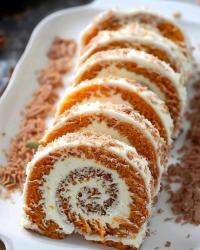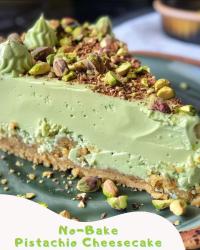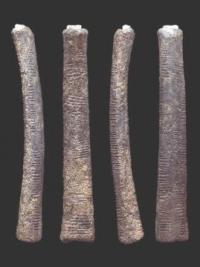Copy Link
Add to Bookmark
Report
HOMEBREW Digest #2021

This file received at Hops.Stanford.EDU 1996/04/26 PDT
HOMEBREW Digest #2021 Fri 26 April 1996
FORUM ON BEER, HOMEBREWING, AND RELATED ISSUES
Rob Gardner, Digest Janitor
Contents:
Rauch beer (TPuskar)
Mugworts and other 'worts (James M. Glenn)
glass bottles ("Goodale, Daniel CPT 4ID DISCOM")
Re: straining hops ("Dave Higdon")
Iowa City Homebrew Classic (Wolfe)
Wyeast #1275-Thames Valley ("John Richardson")
Guiness Screensaver Error (DAVE BRADLEY IC742 6-7932)
ball/pin locks (usbscrhc)
Cool Tap Handles, cont... ("Rich Byrnes")
National Homebrewers Day ("Rich Byrnes")
Why Avoid US Dextrin Malt ? (Koscal Mike)
Carbonator - summary (SSLOFL)
re: possible infection/comedy (bgrant)
Kegging question ("Braam Greyling")
autolysis ("Gregg A. Howard")
Crowd pleasn' 10 gal Recipe (Michael A Gasman)
What Fools We Mortals Be (Paul Ward)
Non-alcoholic recipes... (Randy Jensen)
RIMS Advantages (Ian Smith)
Megabrewery Micros (Mike Beatty)
copy of HBD #2020 (Eric Palmer)
Lightstruck... (Algis R Korzonas)
Addition to Big and Huge post / Great Taste (Robert Paolino)
Securing CO2 tank ("Brian P. Colgan")
Dextrine malt (Olin J Schultz )
Need help converting LP grill to natural gas (Richard & Kathy Lai)
Ice Beer / HomeSoda (non-alcoholic) & Breastfeeding (Eric & Carolyn Metzler)
US carapils (Paul Brian)
Batch Experimentation (Bob Grabhorn)
******************************************************************
* POLICY NOTE: Due to the incredible volume of bouncing mail,
* I am going to have to start removing addresses from the list
* that cause ongoing problems. In particular, if your mailbox
* is full or your account over quota, and this results in bounced
* mail, your address will be removed from the list after a few days.
*
* If you use a 'vacation' program, please be sure that it only
* sends a automated reply to homebrew-request *once*. If I get
* more than one, then I'll delete your address from the list.
******************************************************************
#################################################################
#
# YET ANOTHER NEW FEDERAL REGULATION: if you are UNSUBSCRIBING from the
# digest, please make sure you send your request to the same service
# provider that you sent your subscription request!!! I am now receiving
# many unsubscribe requests that do not match any address on my mailing
# list, and effective immediately I will be silently deleting such
# requests.
#
#################################################################
NOTE NEW HOMEBREW ADDRESS hpfcmgw!
Send articles for __publication_only__ to homebrew@hpfcmgw.fc.hp.com
(Articles are published in the order they are received.)
Send UNSUBSCRIBE and all other requests, ie, address change, etc.,
to homebrew-request@hpfcmgw.fc.hp.com, BUT PLEASE NOTE that if
you subscribed via the BITNET listserver (BEER-L@UA1VM.UA.EDU),
then you MUST unsubscribe the same way!
If your account is being deleted, please be courteous and unsubscribe first.
Please don't send me requests for back issues - you will be silently ignored.
For "Cat's Meow" information, send mail to lutzen@alpha.rollanet.org
ARCHIVES:
An archive of previous issues of this digest, as well as other beer
related information can be accessed via anonymous ftp at
ftp.stanford.edu. Use ftp to log in as anonymous and give your full
e-mail address as the password, look under the directory
/pub/clubs/homebrew/beer directory. AFS users can find it under
/afs/ir.stanford.edu/ftp/pub/clubs/homebrew/beer. If you do not have
ftp capability you may access the files via e-mail using the ftpmail
service at gatekeeper.dec.com. For information about this service,
send an e-mail message to ftpmail@gatekeeper.dec.com with the word
"help" (without the quotes) in the body of the message.
----------------------------------------------------------------------
Date: Thu, 25 Apr 1996 07:44:54 -0400
From: TPuskar@aol.com
Subject: Rauch beer
I recently (about a month ago) brewed a rauch beer using 7 lbs of smoked
malt, 2 lbs of 2-row and 1 lb of crystal-60. It was one of the smoothest
brewing sessions I've had since I went all grain about 6 batches ago. I'm
actually beginning to think I have this thing figured out!
My question is this: The beer has been in the bottle for about two weeks and
been conditioning at basement temps (65F). When put into the fridge for a
couple of hours, it develops a real cloudiness. It doesn't look like the
standard "chill haze" and I was wondering if this is a characteristic of
rauch beers? The beer tastes great and has a great smokey flavor--went real
well with the bbq'd chicken last night!
Any comments from rauch beer brewers would be appreciated.
Tom Puskar
------------------------------
Date: Thu, 18 Apr 1996 16:56:13 -0400
From: jmglenn@grove.iup.edu (James M. Glenn)
Subject: Mugworts and other 'worts
I've read, in a variety of places, that the herb known as Mugwort was used,
in ancient times, to flavor beverages, notably BEER.
I see also in the herbal seed catalogs another plant with the same ending,
St John's Wort.
If anyone's used either of these, how'd it work out? Any comments/ advice/
warnings/ recipes?
====>James Glenn
------------------------------
Date: Thu, 25 Apr 1996 08:27:00 -0500
From: "Goodale, Daniel CPT 4ID DISCOM" <GoodaleD@HOOD-EMH3.ARMY.MIL>
Subject: glass bottles
Dear collective,
In HBD #2020, Klondike Ken writes,
>The lightstruck (aka sunstruck, skunky, or import beer) flavor
>arises when ultraviolet light from the sun or fluorescent bulbs cleaves the
>3-methylbut-2enyl, blah, blah blah.
Anyway, if I remember my optical crystallography correctly,
glass is UV opaque. I remember that a UV prospecting device had to have
quartz glass window for that reason. I always kinda thought that it was
the warmth that skunked beer??
Daniel Goodale
Biohazard Brewing Company
Sure it's gonna kill ya, but who wants to live forever?
------------------------------
Date: Thu, 25 Apr 1996 09:54:27 EST
From: "Dave Higdon" <DAVEH@qesrv1.bwi.wec.com>
Subject: Re: straining hops
I recently brewed up a batch of palidia IPA. The wort was to thick to
strain into the fermenter so poured in the spent hops along with it.
After a week of bottle age I tried one for carbonation and taste. It
was horrible: very bitter with off-flavors. Will these efects decay
with age?
------------------------------
Date: Thu, 25 Apr 96 08:49:00 CST
From: Wolfe@act.org
Subject: Iowa City Homebrew Classic
The 1ST IOWA CITY HOMEBREW CLASSIC
WHEN: May 18th, 1996. Judging begins at 10 AM. Awards at 6 PM.
WHERE: Iowa City, Iowa
CATEGORIES: We'll accept entries in all AHA beer and mead styles (no cider
or sake). Categories may be combined for style categories in
which fewer than 7 entries are received.
JUDGING: Every entry will be judged by at least one BJCP judge. Score
sheets will be returned for all entries.
AWARDS: First, second, and third place ribbons will be awarded in all
categories. Winners will be advanced to Best of Show judging.
First, second, and third place ribbons and prizes will be awarded
in the Best of Show Beer and in the Best of Show Mead judging.
MIDWEST BREWER: Midwest brewers who are awarded ribbons in this
competition gain points toward the 1996 Midwest Homebrewer of the Year
Award. The Iowa City Homebrew Classic is the third of five Midwest
Homebrewer competitions. Contact Dennis Davisson for more information
about the program ().
ENTRIES: Send TWO bottles (brown or green glass, blackened crown capped,
with no labels or other identifying marks) with a bottle label
attached with rubber bands (NO TAPE) and an entry form and entry
fees. We're using the standard AHA bottle labels and entry
forms. Entry fees are $5/entry for 1-3 entries and $4/entry for
4 or more entries). Make checks payable to THIRSTY.
SHIPPING: Send your entries to:
Ed Wolfe
c/o ICHC
5118 Morse Road
Iowa City, IA 52240
THE ENTRY DEADLINE IS MAY 10th.
QUESTIONS: Call Ed Wolfe at 319-643-7354 or email him at wolfe@act.org.
------------------------------
Date: Thu, 25 Apr 96 14:22:17 UT
From: "John Richardson" <Shrink1010@msn.com>
Subject: Wyeast #1275-Thames Valley
Does anyone in the collective know anything about this new strain? My wife
won a pack at a club "do" and I've got a starter going to do a Brown Ale. Any
help, like floc., attenuation, etc. would help.
TIA
John Richardson
------------------------------
Date: Thu, 25 Apr 1996 14:32:49 +0000 (GMT)
From: DAVE BRADLEY IC742 6-7932 <BRADLEY_DAVID_A@Lilly.com>
Subject: Guiness Screensaver Error
Regarding the Guiness screensaver for Windows posted yesterday:
Not only was my post repetitive (kids, don't ever delete
that auto-response with the cancel info!), but it contained
a typo in the domain name. The correct URL is:
http://www.sirius.com/~ratloaf/saver_az
I apologize for my error.
Dave in Indy
------------------------------
Date: Thu, 25 Apr 1996 10:32:47 EDT
From: usbscrhc@ibmmail.com
Subject: ball/pin locks
I use both and thought I'd chime in and agree wholeheartedly with Brian's
answer concerning ball-locks. The bleed valve on top is the difference.
If you can get a keg with one, do it. It is a must. Since there's really
no other differences (assuming keg shape/size isn't an issue with your fridge),
there's no question ball-lock with a bleed valve is what you want.
Happy kegging. Oh, and make sure you find a nice FREE tap handle from a
friendly neighborhood bar owner or distributor. I asked for a cool Oriole
handle at Camden Yards and they said 'sure, they're 50 bucks'! I don't think
so...I'll stick with my Hacker-Pschorr handle I got for free (all legal, too).
HMS - Baltimore
------------------------------
Date: Thu, 25 Apr 1996 10:38:36 EDT
From: "Rich Byrnes" <rbyrnes2.ford@e-mail.com>
Subject: Cool Tap Handles, cont...
Continuing Clarks posting of tap handle leads....
What Clark left off the end of my comment about making your own
was how to make them! The "bolt" on the top of your beer faucet
is a 3/8-16 thread, so go to a woodworking store and buy some
3/8-16" brass threaded wood inserts. If you're handy with a
drill, you can turn lots of things into tap handles. Bowling pins,
the ends of a ski handle, corved wooden tiki-gods, etc.....
Use your imagination and experiment, lets get away from those little
black plastic knobs (yawn!) I discovered that a set of old fireplace
tools my alewife was about to pitch had some very ornate oak/brass
handles.......which were threaded to the brass tools..........which
were also 3.8-16 size thread! Voila! a set of 4 matching oak/brass
tops!
Find a friend who is a wood worker and have a paddle shaped tapper made
up with a big enough area to put your own homebrewery logo or unique
beer logo on.
Most of all, if you are creative enough to be homebrewin, well then you
are definitely creative enough to find someting to stick a 3/8-16 insert
into! ;-) (no punchline there, sheesh!)
I also got a copy of that Golden Lion Pub catalog, neat catalog, only
3-4 tap handles though. Although one of them was a mahogany beer bottle
with cap so you could affix your own label to ($40?). This should be easy
enough turn on a lathe, hmmmmm.
Just had some brain farts (Oh I'm on a roll now!) Golf clubs & ski poles
could be cut to size and plugged/epoxied with a large wood dowel, then the
insert could be put in, voila! Sports taps, hey baseball bats/hockey
sticks/Tennis rackets (well, the top 8" or so anyways!)
Gotta go before I start getting silly, oops, too late!
Regards,_Rich Byrnes Jr
Fermental Order of Renaissance Draughtsmen \\\|///
phone #(313)323-2613, fax #390-4520_______o000_(.) (.)_000o
rbyrnes2.ford@e-mail.com (_)
------------------------------
Date: Thu, 25 Apr 1996 10:54:12 EDT
From: "Rich Byrnes" <rbyrnes2.ford@e-mail.com>
Subject: National Homebrewers Day
Greetings all! Just curious what other clubs are doing for
National Homebrewers Day (May 4th! AND HEY, when is Hallmark
or Shoebox gonna recognize the potential for marketing this
great holiday! ;-)
We have for the last couple of years done brewing demo's at a
homebrew supply shop, parking lot brews. We set up a pico
system and a burner/boilpot for extract brewing. This year
we have actually expanded to doing this demo at 3, yes 3!
(oooohhhhhhh I'm just so proud of my people) different
locations on this upcoming "better be sunny" holiday.
We have talked about getting the whole club together and everyone
bringing brewing eqpt. to see how many gallons we could brew but
I think one of the Alaskan clubs has a pretty good lock on that record.
The suppliers donate the ingredients and we provide the entertainment
and education for the day. It's a great way to get the public involved
and educated on the brewing process. A lot of people have a pre-
conceived notion that brewing is a really difficult and involved
process that is best left up to the micros & mega swillers, many
are pleasently surprised how easy an extract batch is to make.
Actually, for the shameless plug portion of my post.........
Anyone in the Metro-Detroit area that wants to come on down
and check out what we do meet us at Merchants-Royal Oak,
Merchants Dearborn or Brew & Grow.
Regards,_Rich Byrnes Jr
Fermental Order of Renaissance Draughtsmen \\\|///
phone #(313)323-2613, fax #390-4520_______o000_(.) (.)_000o
rbyrnes2.ford@e-mail.com (_)
------------------------------
Date: Thu, 25 Apr 96 07:54:00 PDT
From: Koscal Mike <koscal@pcmail4.nb.rockwell.com>
Subject: Why Avoid US Dextrin Malt ?
I have been following the Dextrin/carapils malt discussion recently with
interest since I have a batch in the fermenter which included 1/2lb in a
3gal batch which was included at the start of the mash. Most of the
discussion was consistent with what I have read, but the following post
caught my interest:
>From: Jim Busch <busch@eosdev2.gsfc.nasa.gov>
>US Dextrin malt, often called carapils malt is distinctly different from
>the German caraHell or the Belgium caraPils malts. The US versions will
>break your tooth if bitten while the continental counterparts are indeed
>very light caramel malts. The glassy interior of the US version is
>a different beast and another malt I tend to avoid at all costs.
I did notice the glassy interior and the fact it was very hard when I tasted
it (tiny jaw breakers). Jim, why do you avoid the US version at all costs?
What other malts do you tend to avoid and why?
------------------------------
Date: Thu, 25 Apr 1996 10:26:51 -0500
From: SSLOFL@ccmail.monsanto.com
Subject: Carbonator - summary
It all started with Arts question in HBD #2017:
>Is there some other way to use the carbonator to charge these 2 liter
>bottles with CO2, or some other simple, cheap way to charge these
>bottles homebrew to be gifts for friends?
Mark wrote a letter to me in reguards to my post to Al's question. It
turns out that he has been using the Carbonator for some time just as I
described on HBD #2019. He also included a few additional tips that I
thought I should share with everyone. (He said to try it with koolaid,
the nieces and nephews will love this one!)
From Mark's letter:
>I mix the ingredients right in a 2L PET bottle, and carbonate as you
>describe. I only use 20-25 lbs (psi) though. They recommend pushing in
>the valve on the cap while squeezing the bottle to purge air prior to
>carbonating. When you give it the initial blast, it sounds like the
>bottle's gonna pop! I carbonate/shake after I mix, then put it in the
>fridge to chill (w/o gas connected). I repeat this 2-3 times, usually
>once again later that day, and again the following morning. I let it
>chill a few hours after the last charge, then swap caps. I've played
>with shaking shortly before swapping caps to get the gas back into the
>soda first, and it seems to help, but I haven't paid close enough
>attention to verify that it does. Works good with Koolaid too :)
Another possibility is described by Mike Urseth in HBD #2018:
>Another alternative that I've heard (but not tried myself) is to get
>some Schrader valves (tire valve stems) from your local auto supply
>store. Drill a hole in the PET bottle cap (about 3/8" - measure
>the hole in a wheel) - and insert the valve stem from the inside of the
>cap. All you need to do is add a standard tire fitting on the end of a
>CO2 line and go from there. Cost should be less than a buck a piece.
>Not as slick as the commercial unit, but the price is right.
I made one of these. I haven't tried it yet since I am still
making the CO2 line with tire fitting on the end. It looks like it
should work great, and they are cheap to make. I paid $1.40 for two
valve stems and about $8.00 for the fittings needed to make the CO2
line. In the long run, they are much cheaper than the Carbonators.I
can't wait to try it out! This way, when you make several of these and
give bottles to friends, you aren't out much if they aren't returned!
------------------------------
Date: Thu, 25 Apr 96 16:18:26 PST
From: bgrant@CCGATE.HAC.COM
Subject: re: possible infection/comedy
in 2020, Craig asks about "things" adhering to the sides of his
bottles...
I get what might be the same during the early days after bottling when
carbonation occurs - it happens regularly, and tends to disappear over
time. I believe it is just little CO2 bubbles that adheres to minor
irregularities on the insides of the bottles, perhaps supplemented by
being covered with a touch of sediment starting to come out.
In other news, I'm presently working in Geneva, and saw this Bud ad on
TV the other day. I nearly peed myself laughing. The text in the ad
goes something like
"During our brewing process, out master brewers taste the beer over
and over and over and over again. Sounds like the perfect job!"
- hmmm, methinks that soused braumeisters explain a lot of the taste!
but the real comedy was to follow:
"Budweiser - the perfect reason to drink beer"
- OK, whatever. They can believe what they want to believe.
Bruce
looking forward to coming home in 7 days because
1) I miss my lovely young wife! Mmmmmmmm - girrrrrllllll!
2) I can't wait to try my "Do Ya Think I'm Saazy?" Pilsner that's been
lagering in the cellar for the past three months. My first brew with
speciality grains and liquid yeast! Mmmmmmm - beeeeeeeerrrr!
------------------------------
Date: Thu, 25 Apr 1996 17:26:40 +200
From: "Braam Greyling" <ACG@knersus.nanoteq.co.za>
Subject: Kegging question
Hi
I recently got two 5gallon corny kegs. My liquid assembly is about
1.5m long. My gas assembly is about 1m long.
I use ball locks.
Will 30 psi inside the kegs be too high ?
What must it be ?
Thanks
Braam Greyling Design Engineer
Nanoteq (Pty) Ltd tel. +27 (12) 665-1338
- ---- 24 hours in a day, 24 beers in a case ----
- ---- coincidence ????? ----
------------------------------
Date: 25 Apr 96 12:22:44 EDT
From: "Gregg A. Howard" <102012.3350@CompuServe.COM>
Subject: autolysis
I recently tasted a beer that had spent *eleven* months in the primary
(glass) at room temperature, probably reaching at least 80F at some point last
summer, with its full complement of yeast (one packet of Yeast Lab Amsterdam
Lager; it was arguably underpitched). Aside from a decided lack of hop
character, the beer was pretty good. This got me to wondering; is autolysis
oversold as a brewing danger, or was this a freak occurrence? Miller and
Papazian are both fairly nebulous as to circumstances under which autolysis will
actually take place. Any similar experiences? Has there been much research on
autolysis? How the heck do you pronounce it? :-)
Pardon the bandwidth, but before I started kegging I had way too many bottles.
Now that number is verging on the pathological. I've got 5 excess cases of Sam
Adams bottles and 12 of Steinlager bottles (yes, I know they're green, but you
can't leave brown bottles in the sun either. I've never had a skunky one yet,
and pale beers look gorgeous in them). If anyone in the Denver area is
interested, please e-mail. They're all clean, label-free, in 6-pack sleeves in
cases.
Gregg
Gregg A. Howard Denver, Co. 102012.3350@compuserve.com
------------------------------
Date: Thu, 25 Apr 1996 10:41:04 -0700
From: Michael A Gasman <michael_a.gasman@MAMC.CHCS.AMEDD.ARMY.MIL>
Subject: Crowd pleasn' 10 gal Recipe
I have enjoyed the mix of applied science and bold adventures that the list
has provided. My first post - a request.....
I am a new grain brewer and would like to double my batch size to 10 gal to
create enough brew to satisfy the more discriminating guests at my sister's
wedding. I use a 6 gal bucket/phalse bottom system. My kettle can handle 14
gal so that's not a problem. I figure I will split the wort into two carboys
and pitch two different strains of yeast for a little variety.
The questions:
Does anyone have a tried and true 10 gal recipe that is widely
pleasing? I was thinking in terms of a Brown Ale (which could be close to a
dunkle with lager yeast in the other carboy.)
How much grain can my 6 gal lautering system handle? I'm happy to
augment with extract.
Any sage advise in approaching this endeavor would be appreciated!
Direct E-mail most appropriate/preferred
Mike Gasman
too long address above or; gasman@tscnet.com
------------------------------
Date: Mon, 22 Apr 1996 11:02:01 -0400 (EDT)
From: Paul Ward <paulw@doc.state.vt.us>
Subject: What Fools We Mortals Be
I know I'm using up all my free tech support on beginner
questions, but there are some things I just gotta know. This
became evident this past weekend as I was brewing a porter, which
was also my second time using specialty grains. I ended up
naming this brew "Apocalytic Porter."
My wife had been sick since Thursday with an ever worsening
cold/flu. I decided to do some quiet brewing at about 6:30 A.M.
on Saturday so she could sleep in. I crushed 1 lb. of black
patent and 1/2 lb. of crystal and put them on to steep. The
house filled with the (what I though of as) great smell of
'Maltex' (TM) cereal. As I was removing the grains before adding
the extract, I heard the pitter patter of little feet running to
the bathroom followed by the sound of retching. After the sounds
of brushing and gargling, my wife walked into the kitchen looking
rather pale and informed me that if I ever made anything that
smelled that foul again, I could brew my next batch in my tent in
the back yard, because that was where I would be living. Her
exact words were, "I don't think there is a worse smell than that
STUFF!"
I kissed her on the forhead, wiped some drool from the corner of
her mouth and gently pushed her back into the bedroom so she
could get some much needed rest. I then resumed brewing, adding
the hop pellets and extract syrup. I got a really good rolling
boil going. Armed with the knowledge that I *NEVER* had a
boilover, I started doing some of my saturday morning chores such
as sorting my recylcables. Now I have to say that I tried
improving my hops utilization with this batch. In the past I
used hop bags, sewn coffee filters, and cheesecloth wraps to
contain my hops pellets and never got good bittering or flavor.
This time I just threw 2 oz. of Northern Brewer pellets into the
pot. To say that I was surprised as I looked up and saw froth
bubbling out of the pot would be an understatement. I ran to the
stove, grabbed the pot and swung it over to the sink. The wort
that had run down the side of the pot fell onto the (electric)
stove's red hot burner and filled the kitchen with quite a bit of
smoke. As I was cleaning this up, I looked up to see my wife in
the doorway with a wisp of hair hanging across her face. "Thanks
for proving me wrong!", was her only comment before trundling
back into bed.
*QUESION 1* Since this wsa my first boilover, and the first time
my hop pellets weren't contained in any sort of bag, is there a
relationship here?
After cleaning up the stove, I put the (now partially cooled)
wort back onto the burner and brought it back to boil. The boil
seemed very good, staying where it should in the pot and all. I
figured everything was fine at last, and went back to my
recylcing. What happened next can only be descibed as biblical
in proportion. If I thought the boilover I had before was
impressive, I was mistaken. It looked like all of my wort was
attempting a mass escape (bear in mind, I started with 8 quarts
in a 20 quart SS pot). This boilover reminded me of a science
fiction movies I saw in the late 50's or early 60's called 'The
Blob'. I again raced to the stove and moved my pot into the
sink. When I looked back at the stove, I had flames jumping 8"
off the burner! I put my face next to the burner and started
blowing the flames out, the kitchen was full of black smoke, and
standing like a wraith from the pits of hell, my wife stared at
me with slitted eyes and said, "we'll talk later!" She then went
back to bed, closing the bedroom door behind her.
*QUESTION 2* Is my domestic harmony ruined?
Although I strained my wort as well as I could though cheeselcoth
and a seive, quite a bit of the hop pellet particles made it into
the fermentor. This brew is fermenting *STRONGLY*! I checked on
it this morning, and found my airlock lying on top of my white
plastic fermentor's lid, full of brown liquid. It's tube was
plugged with hop particles. There was kreu....kraeu...brown
foamy s**t bubbling out of the small hole in the lid, down the
side of the fermentor and all over the carpeting of the spare
bedroom I use for fermenting. I cleaned out the airlock, put
fresh water in it and stuck it back in the lid. Amazing amount of
CO2 just blowing out of the lock.
*QUESTION 3* Anything special I should use to remove beer
stains/odor from the bedroom carpet before my wife finds out? I
plan on trying some of that RESOLVE (tm) stuff tonight when I get
home.
*QUESTION 4* What is the 'correct' way to use hop pellets? It's
all my homebrew supply shop carries, so I don't have options.
Whenever I try 'bagging' them, they just float around in my pot
in a solid brick like mass (amazing how much they swell up). My
beers have been too sweet (insufficient bittering), and I haven't
been able to get any hop aroma. Throwing them in the pot loose
seems way too messy (and potentialy dangerous if they contribute
to boilover).
All in all, this is proving to be quite a fun hobby.
Paul
paulw@doc.state.vt.us
- --
If vegetarians eat vegetables, what of humanitarians?
------------------------------
Date: Thu, 25 Apr 96 11:25:31 PDT
From: rjensen@ainet.com (Randy Jensen)
Subject: Non-alcoholic recipes...
In HBD 2020 someone asked for root beer recipes for his nursing wife. Being
in the same position (my wife nursing) I would _love_ it if someone had a
great birch soda recipe. My wife is addicted to Thomas Kemper's Birch Soda.
But at $5 a six-pack I'd like to make it myself and keg it.
If anyone has such a recipe it would be most appreciated!
Thanks in advance,
Randy.
- ----------------------------------------
- rjensen@ainet.com - Randy Jensen -
- find me at: -
- N37*31'43" W120*53'04" -
- ----------------------------------------
"Deep in the chaotic regime, slight changes in structure
almost always cause vast changes in behavior. Complex
controllable behavior seems precluded.
-STUART KAUFFMAN
------------------------------
Date: Thu, 25 Apr 1996 12:54:19 -0600 (MDT)
From: Ian Smith <rela!isrs@netcom.com>
Subject: RIMS Advantages
This may sound like a stupid question but here goes...
Can anyone tell me what are the advantages of RIMS versus single or step
infusion mash schedules are ? I think the main benefit is more uniform
and possibly more accurate mash temps in the mash tun ? I personally find
it difficult to single step infusion mash at a constant/uniform
temperature. I always stir the grains but my thermometer reads higher in
the middle of my tun (igloo cooler) than on the sides and there is a
temperature gradient from top to bottom. I suppose this kind of problem
is eliminated using RIMS ? Anyone, anyone.....
Cheers
Ian Smith
isrs@rela.uucp.netcom.com
------------------------------
Date: Thu, 25 Apr 1996 13:51:41 -0500
From: Mike Beatty <mpb@minuet.ee.siue.edu>
Subject: Megabrewery Micros
Greetings Collective!
Now officially off 'lurk' status, I'd like to share my experience with
you about last nite. Last nite, I attended a beer tasting at the
Anheuser Busch Brewery in St. Louis, which I was invited to by some
unknown mailing list affiliation. The brewery was introducing three
beers made from recipes that dated back to the turn of the century
from when Adolphus Busch was running their show. The three beers,
(Faust, Muenchener, and a Black&Tan) are described below for those
interested in what I experienced (save the flames and page down
if you don't care to hear this... I KNOW htis is a forum for
HOME brewing...)
One more disclaimer: I am by no means a registered/professional beer taster,
just an avid micro/homebrew conoseur (sp?).
Faust Lager: A golden, light colored beer with full flavor (for a
light beer) which IMHO, would be a beer that I would drink from time
to time. Overall, good head retention, good flavor, but I'm not sure
I would buy it based on my microbrew-induced prejudice towards
Megaswill brews.
Black&Tan: The first I have ever seen through the glass (B&T). The
flavor was 'unfinished' in a sense, as the pre-consumption esters
didn't match up too well with the after-taste (make sense?). The
initial aroma indicated a smooth drink, but after tasting the beer,
I had a bitter, crusty tastee in my mouth. Won't be buying that one.:P
and finally,
Muenchener: I wasn't sure what style or taste to expect from this beer,
but I was pleasantly suprised by the taste of this beer. It had a
full (yeah, full for Megaswill) taste that was actually pretty good.
It was a dark amber with a smooth taste and a nice balance of malt
and hop flavors (did I say that?). Overall very good (even for...)
Just thought I'd pass this on, since this seems to be an obvious attempt
by the big boy to pass off a micro-styled brew. All in all, it was
enjoyed by most there, including some homebrewers that I attended with.
Please be gentle with the flames, talking about the big guns of brewing.
I just thought some might enjoy hearing about some new beer that
may/may not end up on the local shelves.
Thanks to the collective for all the great info, as I hope to start
my first batch within the month! <fingers crossed!>
Mike Beatty
Beer Lover, extrordinaire, and bad speller ;)
------------------------------
Date: Thu, 25 Apr 1996 12:55:08 -0700 (PDT)
From: palmer@San-Jose.ate.slb.com (Eric Palmer)
Subject: copy of HBD #2020
In a fit of "housekeeping" fervor, I inadvertently deleted my copy of #2020.
Would someone be good enough to forward me a copy.
Thanks,
Eric palmer@san-jose.ate.slb.com
- ------------------------------
"Good beer improves with age. The older I get, the more I like it"
------------------------------
Date: Thu, 25 Apr 96 16:20:34 CDT
From: korz@pubs.ih.att.com (Algis R Korzonas)
Subject: Lightstruck...
Ken writes:
> The lightstruck (aka sunstruck, skunky, or import beer) flavor
>arises when ultraviolet light from the sun or fluorescent bulbs cleaves the
>3-methylbut-2enyl radical from the isohumulone molecule.
Yes, but it does not have to be ultraviolet... in fact very little
ultraviolet light makes it through glass. Through a process called
non-radiative energy transfer, visible light (in some places it says
green and below, in other places I've read that it is light in a
narrower range, somewhere around blue-green) reacts with what is called
a sensitizer (believed to be riboflavin in this particular reaction --
the skunking of beer) and then transfers this energy to the isohumulone.
Indeed, Miller Brewing Co. uses treated hop extracts. Tadcaster Brewery
(Samuel Smith's) and the makers of Newcastle Brown Ale (another beer bottled
in clear glass) do not.
Al.
Al Korzonas, Palos Hills, IL
korz@pubs.att.com
Copyright 1996 Al Korzonas
P.S. Thanks to Pierre Jelenc for explaining non-radiative energy
transfer to me...
------------------------------
Date: Thu, 25 Apr 1996 18:20:19 -0500 (CDT)
From: Robert Paolino <rpaolino@execpc.com>
Subject: Addition to Big and Huge post / Great Taste
A few days ago, I posted a reminder about the Madison Homebrewers and
Tasters Guild BIG & HUGE homebrew competition, and mentioned the basic
details (it's a competition for higher gravity beers >=1.050).
What I did not mention is how you could get the rules _automatically_.
Send the request:
get huge
as the body of a message (no subject) to madbrew-request@aviion.persoft.com
You will automatically receive (i.e., you won't have to wait until I have a
chance to read my mail) the rules for the competition. If after receiving
the rules, you have questions, drop me a note.
If you want to judge, let me know!
- - - - -
On another topic: Tickets for the 10th Anniversary Great Taste of the
Midwest, a festival of craft brewers and their beers, go on sale 1-May-96.
Tickets are $17 and you may order them (no earlier than the on-sale date)
by calling 608.255.6062 and paying with Visa. Or you can save a buck by
ordering them by mail, by sending $16 per ticket (check payable to MHTG)
_plus a self-addressed-stamped-envelope_ to MHTG/GTM-X, P.O. Box 1365,
Madison, WI 53701-1365. Orders will be sent after your payment clears.
Again, you should be sure to mail your order so it does not arrive before
1-May-96, in fairness to everyone. These tickets sell out quickly, so if
you want to attend the premier beer event in the nation's heartland, don't
wait until June or you may be out of luck.
We look forward to welcoming you to Madison!
Now go have a beer,
Bob Paolino
Madison rpaolino@earth.execpc.com
You may now go back to your regularly-scheduled beer
------------------------------
Date: Thu, 25 Apr 96 13:43:09 EST
From: "Brian P. Colgan" <bcolgan@sungard.com>
Subject: Securing CO2 tank
bpc 25apr:
To prevent CO2 'rockets', may I suggest something simpler than securing the
bottle to something. I use a 'gage cage', which surrounds the gages so
they don't break when the bottle falls over. about 25 bucks at my homebrew
store, so it pays for itself the fisrt time you knock over your CO2 bottle!
brian
------------------------------
Date: Thu, 25 Apr 1996 17:32:44 -0700
From: beerx3@ix.netcom.com (Olin J Schultz )
Subject: Dextrine malt
Bill writes:
>Carapils malt or Dextrin malt is suppose to add unfermentables and
>dextrin to the finished product. I can see how this works when added
>as specialty grains to an extract-based beer since there's no enzymes
to
>break the dextrin down. However, when doing an all-grain mash, do the
>enzymes break the dextrin down into simpler sugars (depending on mash
>temperature, of course)? Or, do the dextrin chains remain intact
(would
>also apply to caramel and dark roasted malts), and if they do, why?
Algis writes:
>Firstly, Carapils and Dextin malts are very light caramel malts and
>yes,indeed this whole discussion does apply to all caramel (a.k.a.
>crystal)malts as well as dark malts.
Hello,
I have some interesting information about Carapils/Dextrine malt.
First, to clear up any confusion, Carapils and Dextrine malt are one in
the same. Carapils is the trademarked name of Dextrine malt. Dextrine
malt contains a high percentage of dextrins which are unfermentable by
the malt enzymes, alpha and beta amylase. No matter how long or at
what temperatures the Dextrine malt sits in the mash tun, little or no
breakdown will occur.
This malt is made by a complex process that is proprietary to the
Briess Malting Company. When I talked to a spokeperson for Briess I
was told that the process was a secret but that it is completely
different from the production of crystal/caramel malts. I was also
told it is 18% soluble in water, meaning the extract brewer would only
realize 18% of the malts potential. To fully utilize the benefits, you
need to mash it with a good percentage of enzyme bearing 2-row or 6-row
malt.
What the enzymes do to effectively 'release' the dextrin chains
from the malt witout breaking them down I do not know. Perhaps there
is a partial breakdown. I'm sure it would be appreciated by all if
someone with a greater understanding of these processes can answer this
question. I do know that Carapils does not add any flavor or color.
The benefits, as expressed to me by the Briess spokesperson, are
increased body/mouthfeel, increased head retention, and some
anti-oxidation properties.
Extract brewers are recommended to use dextrin powder in place of
Carapils. The spelling *Dextrine* with an e is how Briess spells it...
and since this is their proprietary malt who am I to argue.
In conclusion, no the dextrins do not get broken down to simpler
sugars(because of their structure). Carapils/Dextrine malt should not
be treated as lighter version of crystal because the types of sugars
within the malt are completely different. Taste Carapils and
crystal... Carapils is not sweet at all.
Anyways, gotta run...4 very active taps and tons of thirsty friends....
Olin Schultz
Beer, Beer & More Beer
beerx3@ix.netcom.com
------------------------------
Date: Thu, 25 Apr 1996 20:03:51 -0400
From: navarre@eden.com (Richard & Kathy Lai)
Subject: Need help converting LP grill to natural gas
I apologize if this is the wrong newsgroup to post to.
My wife and I have a Liquid Propane (LP) barbecue grill
that we want to convert to natural gas. Has anyone done
this?
If someone has done this, did you have to replace the
burner and orifice or just the orifice? Who did this
for you, or how did you get it done?
I've called up several places, and they're either
unable to sell converter kits, or feel it's too dangerous.
Are we the only ones who have thought of this?
Thanks in advance,
Richard & Kathy Lai
**************************************************************************
* We make a living by what we get, but we make a life by what we give. *
* -= Winston Churchill =- *
**************************************************************************
------------------------------
Date: Thu, 25 Apr 1996 21:26:52 -0700
From: Eric & Carolyn Metzler <ewmetzler@telplus.net>
Subject: Ice Beer / HomeSoda (non-alcoholic) & Breastfeeding
Jim Duensing asked about the process for making ice beer. A.J. deLange's
reply quoted from the patent for the process. Did you know the Winter
1995 _Zymurgy_ (18:5) features an article on Eisbock, with three recipes?
(303) 447-0816 is their #.
/\/\/\/\/\/\/\/\
aesoph@ncemt1.ctc.com (Aesoph, Michael) asked about making ". . .
non-alcoholic beverages such as root beer, cream soda, fruit flavored
sodas, etc. Michael, I've made non-alcoholic ginger ale & root beer from
kits that use cane sugar, water and 2 oz. of flavoring, plus a minute
quantity of champagne yeast. (Homebrew stores and mail-order supply
the soda flavoring.) They have come out too fizzy, not very tasty, and
for the work involved I'd rather drink cheap commercial soda (which I
don't).
That's the bad news. The good news, maybe, is that your
breastfeeding baby might not be hurt by its mother having an _occasional_
alcoholic homebrew. Might help the evening fussies sometimes. Check
with your healthcare provider(s). As my wife says "all those millions of
French & Italian women can't be all wrong."
I've never heard of a simple process for removing alcohol from
home-made brew--if anyone knows of one, I'd like to know more.
Thanks--Eric W. Metzler, Enfield Maine
------------------------------
Date: Thu, 25 Apr 96 23:59:15 EDT
From: pbrian@Tudor.Com (Paul Brian)
Subject: US carapils
In hbd 2020 Jim Busch mentioned that he tends to avoid US carapils malt.
Why? Does it have something to do with mashing? He mentioned only that
it will break your tooth if bitten.
The only reason I ask is because I recently used US carapils for the
first time, hoping to add some extra body (or "mouthfeel") to a dark
ale. Since I'm an extract brewer and use grains for flavor only, will
US carapils suffice or am I better off using Belgian or German
varieties? Also, how much should be used?
Trying to create an ale somewhat on the lighter side of a porter, here's
the recipe if anyone wants to comment-
Lord Stanley Dark Ale
6 # light malt extract syrup
1+ # NW Gold dry malt extract
8 oz crystal (60 L.)
8 oz carapils
4 oz chocolate malt
2 oz roasted malt
1 oz perle pellets (boil)
.5 oz cascade pellets (boil)
.5 oz cascade (flavor)
1 oz williamette (Aroma)
2 tsp gypsum
Wyeast American Ale II
O.G 1.045
I'll probably be able to answer these questions myself once I taste the
finished product (It's still in the secondary), but I felt like finally
posting something. TIA and for all your previous knowledge.
Paul
"I always drink in moderation. One homebrew at a time."
- ----- End Included Message -----
------------------------------
Date: Thu, 25 Apr 1996 23:06:52 -0700
From: Bob Grabhorn <grabhorn@olywa.net>
Subject: Batch Experimentation
Hi, folks. Hey, I've been at this since mid-February. I've brewed 8
batches now, two of which were all-grain. I'm very happy with my results,
and am definitely getting better with each batch.
This summer, I'd like to scale back my brewing severely to devote more time
to my gardening and other outdoor hobbies. But I don't think I can
completely drag myself away from brewing. So here's what I'd like to do
during the summer.
I'd like to get a better handle on the real effects of different specialty
malts and hops. I was thinking I'd do several one-gallon batches, all made
almost entirely from pale malt. The variation would be a handful of a
different specialty grain or different hop in each.
Here are my questions:
Does this seem like a worthwhile experiment?
Should I use pale malt, or would I do just as well to use extract?
What's a good quantity for the "handful" of specialty grains?
What's a good (ale, please) yeast to use so that I'll taste the differences
in specialty grains, without spending $4 on a Wyeast pack for each batch?
How long should I mash, boil, etc. for a one-gallon batch?
Thanks everyone!
Bob Grabhorn
------------------------------
End of HOMEBREW Digest #2021, 04/26/96
*************************************
-------





























